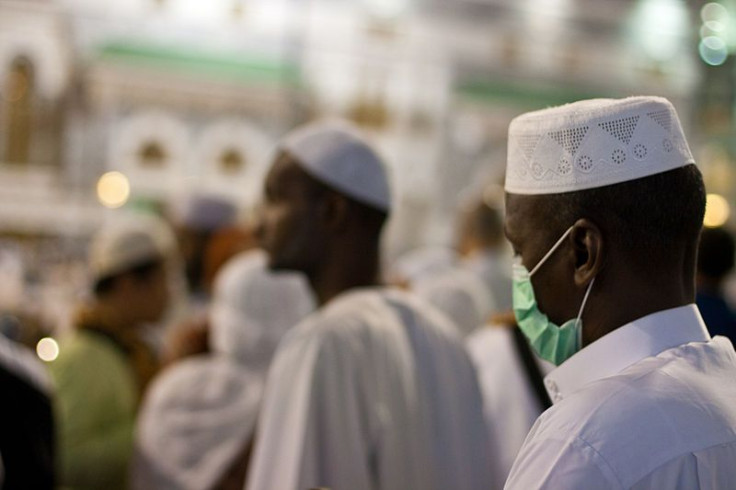Health Officials Convene In Cairo To Discuss MERS And Ramadan, While The SARS-Like Virus Kills One More In Saudi Arabia

Late on Friday, the Saudi Health Ministry announced that one more person had died of MERS (Middle East Respiratory Syndrome), the SARS-like coronavirus that has become a pandemic in the area. The deceased patient was unnamed, according to Reuters. In addition, the Ministry confirmed two additional cases of MERS, one a 41-year-old woman in the Riyadh area, and the other a 32-year-old who caught the virus while being treated for cancer. These announcements bring the total confirmed cases of MERS to 70 worldwide, along with 39 related deaths.
The continuing spread of the disease has become a serious concern for public health officials in the area, and globally. In particular, experts are concerned that MERS may spread even more rapidly this coming July, when hundreds of thousands (or even millions) of pilgrims are expected to convene on the holy city of Mecca for Ramadan. Ramadan, which begins on July 9th, is a month of fasting, during which Muslims from around the world come to visit the holy sites of Saudi Arabia in a pilgrimage called "umrah."
The concern, of course, is that controlling infectious diseases at these kinds of mass gatherings can be extremely difficult. And on Wednesday, an international team of experts announced that studies have revealed that a widespread MERS outbreak could be more deadly than the SARS outbreak 10 years ago. In addition, MERS still remains a mystery - scientists are unsure how people contract the virus.
"We still don't have a good idea where this [virus] is coming from, so taking measures to mitigate risks are constrained," Kamran Khan, who works at the Saint Michael's Hospital Keenan Research Center in Toronto, told Salon.
In order to figure out what advice should be publicly given to travellers, the World Health Organization (WHO) called a meeting this past week. Officially the meetings, held between June 20 and June 22, were to "discuss and agree on a collective response plan to counter the threats of novel coronavirus infection to global health." But there is clearly more at stake with Ramadan on the way.
"Everyone is very aware of the fact that Ramadan begins next month and that there will be a large, large movement of people in a small crowded spaces," Gregory Hartl, a spokesman for the WHO, told the Telegraph. "So the more we know about this virus before that starts the better."
Some are predicting that surgical masks will be advocated. However, research into the use of facemasks has not fully confirmed their value; in 2009, for example, the U.S. Centers for Disease Control and Prevention chose NOT to recommend facemasks for protection against the H1N1 Swine Flu. Many also believed that specialty masks, such as N95 respirators, would be of particular value. A 2009 study in the New England Journal of Medicine, however declared that the specialty masks were no more effective than dime-store versions. With such mixed results, the WHO may be hesitant to make an official recommendation on this point.
MERS causes respiratory issues, including coughing, fever, and shortness of breath, according to the CDC. Clusters of cases have been found in Saudi Arabia, Jordan, the UK, France, Tunisia, and Italy - all of which are known to have originated in the Middle East.



























